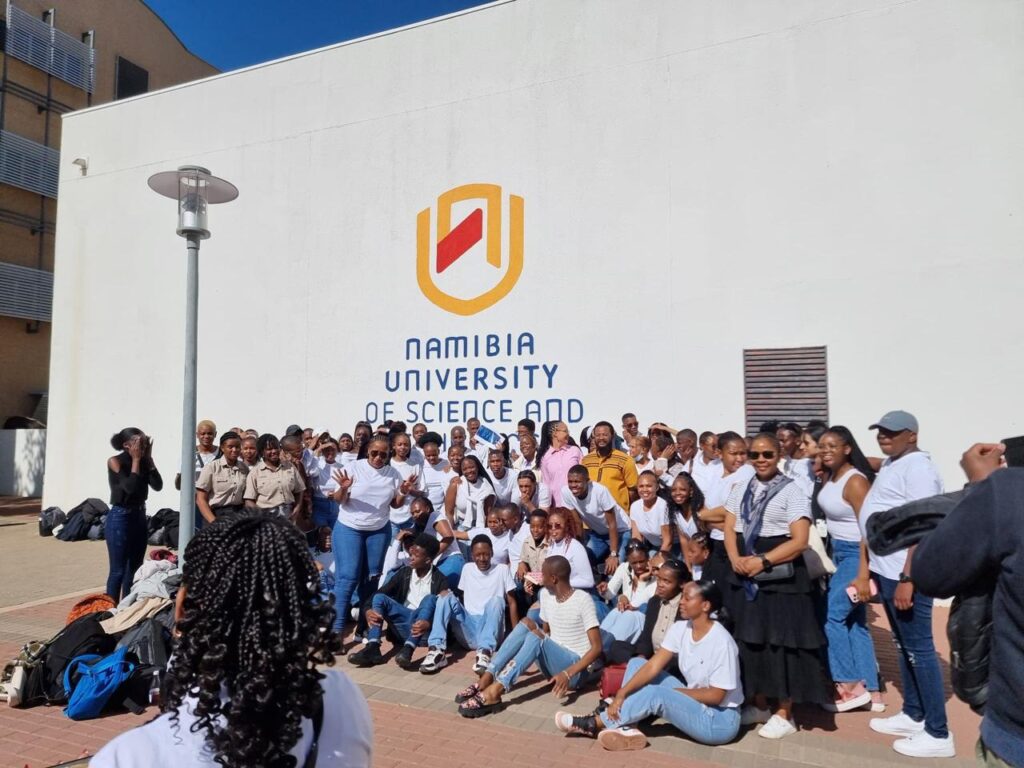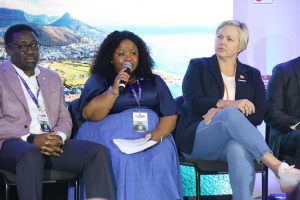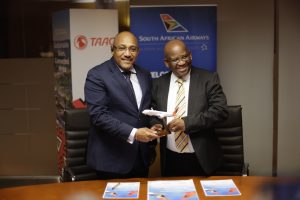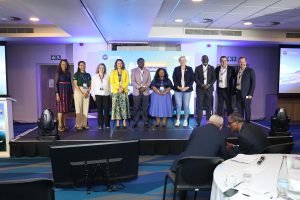Excitement filled the air as 68 students and 8 staff members from the University of Johannesburg’s (UJ) faculties of Humanities and Law embarked on an Africa by Bus trip to Namibia in June 2024. The journey, which took place from the 23rd to the 29th of June, marked the first edition of the Africa by Bus program for 2024. It was fully endorsed, sponsored, and funded by the UJ Division for Global Engagement.
Africa by Bus is an academic initiative organized by UJ to enable students to travel across various African countries, engaging in educational ventures while immersing themselves in the continent’s rich culture, diverse cuisine, and stunning landscapes. This program provides students with a unique opportunity to share their insights with peers from different African countries and deepen their understanding of their continent. It also forms part of UJ’s vision of global engagement, academic knowledge expansion, and production.
This year’s trip, organized and coordinated by Maipato Mmako from the Faculty of Humanities at UJ, aimed to foster collaboration between students from UJ and the Namibia University of Science and Technology (NUST). The collaboration is centered around the theme of Sustainable Education, with a core focus on Digital Humanities and Environmental Sustainability in Education. As such, this edition of Africa by Bus aims to contextualize the United Nations Sustainable Development Goal 4, Quality Education, within the African imagination. As a result, the travel cohort will present research papers at the University of Johannesburg Undergraduate Conference based on the various sub-themes under sustainable education.
Academic and exploratory activities
The trip was meticulously designed to encompass both academic and exploratory elements. Participants had the privilege of attending an informative session delivered by Dr. Isobel Manuel and Ms. Theodora Mweuta, who provided an overview and history of NUST and highlighted some interesting sustainability practices on campus. One such practice is the EBikesWindhoek pilot study, which aims to promote sustainable mobility by allowing students to use solar-powered electric bicycles for up to three months. This project aims to reduce the costs of conventional transportation by promoting a cycling culture in Windhoek, thereby contributing to Sustainable Development Goal 7: Affordable and Clean Energy. According to the United Nations progress report (2024), significant progress is being made in this area.
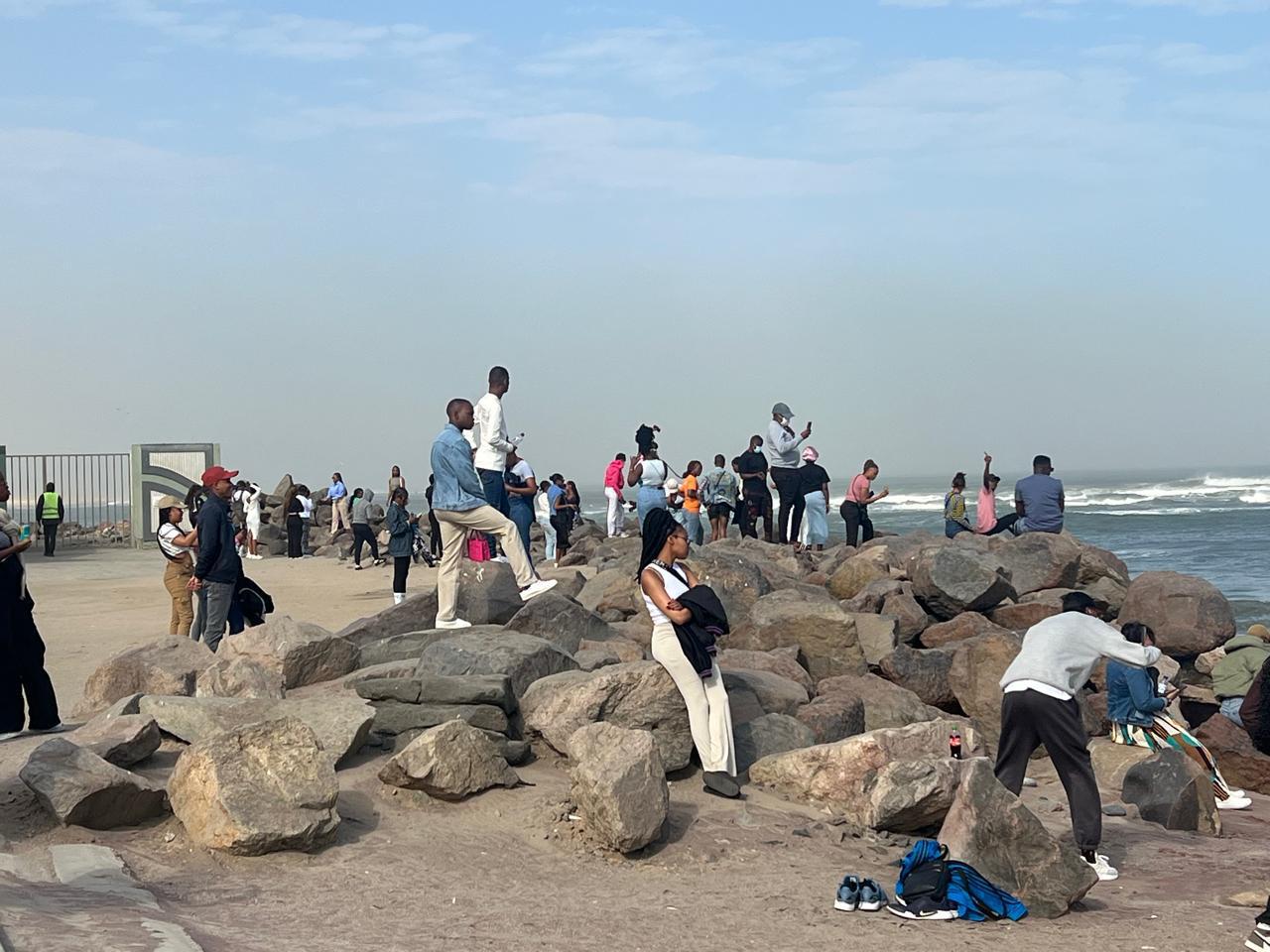
Additionally, students attended a public lecture by Prof. Bhaso Ndzendze, who currently serves as the Vice Dean of the Faculty of Humanities at the University of Johannesburg. Prof. Ndzendze delivered a lecture on the historical relationship between South Africa and Namibia. He highlighted the key events and milestones that have shaped the political landscapes of both countries and also presented intriguing similarities and shared futures between these nations, posing a significant and thought-provoking question: “Should South Africa and Namibia work towards unification?” he asked, sparking an impassioned debate among the students.
Building relationships and cultural immersion
The trip facilitated meaningful social interactions. Students and academic staff were able to form significant connections among themselves as well as with students from NUST. They gained cultural experiences through interactions with locals from different tribes, such as the Himba people, allowing for deeper insights into their daily lives. This immersion provided a richer understanding of the region’s cultural heritage. One of the most memorable aspects of the journey was exploring the Namib Desert and the Namibian coast in the city of Walvis Bay. This experience deepened their appreciation for Africa and inspired many to educate others about Namibia’s history and stunning landscapes.
Future research and educational initiatives
This edition of Africa By Bus marked the first step in reimagining Intra-Africa Travel and academic research, particularly within the framework of the Sustainable Development Goals (SDGs). It prompted intricate reflections on what sustainable education looks like in Africa and highlighted the need for increased intra-Africa mobility, especially among African students.
With the theme centered on Sustainable Education, focusing on Digital Humanities and Environmental Sustainability in Education, students are eager to see how different groups will incorporate their experiences in Namibia into their ongoing research projects.
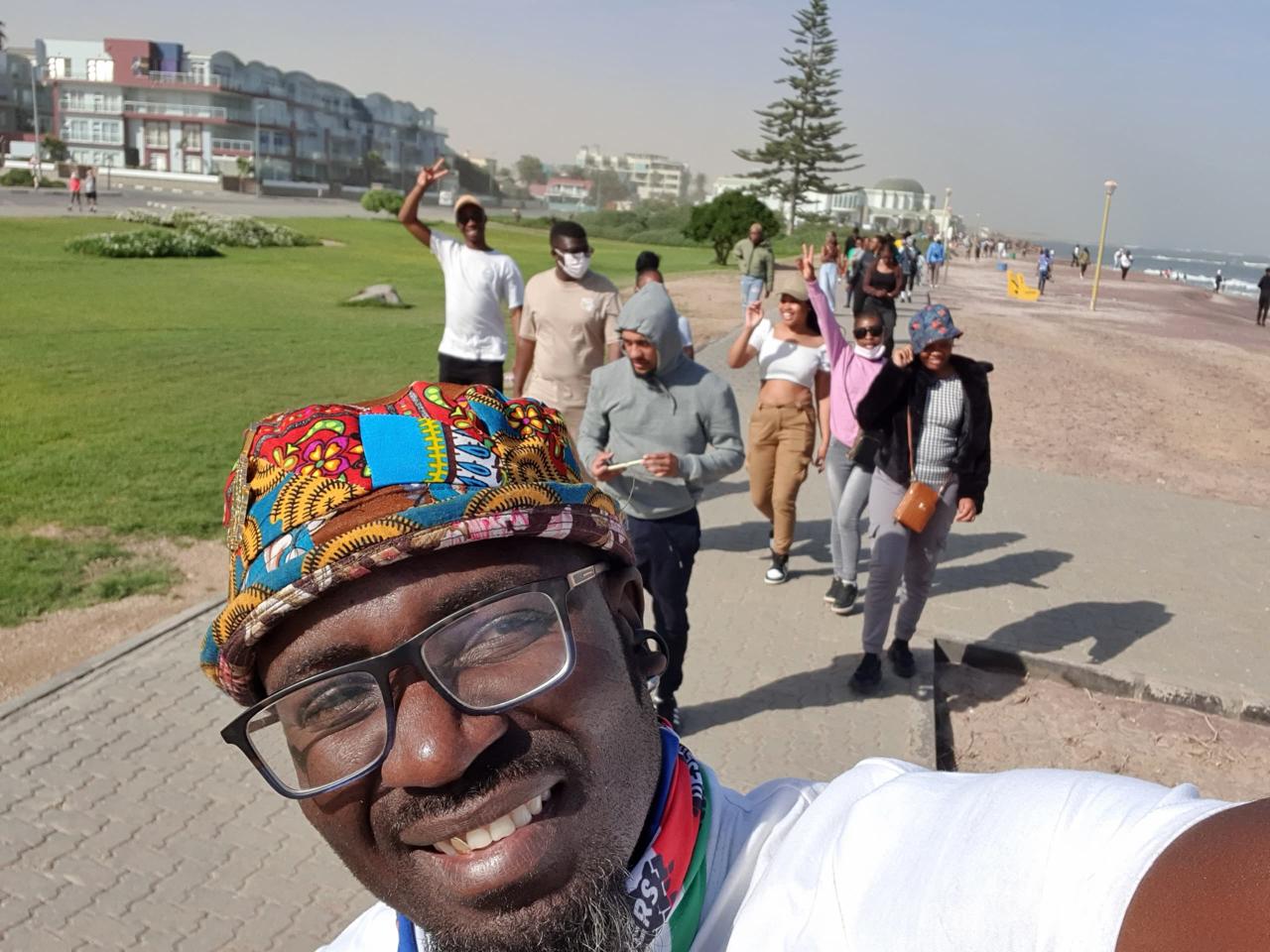
“We anticipate producing digital storytelling content to accommodate diverse learning styles, including auditory, visual, and reading preferences,” says Mpho Maleka, one of the senior participants, currently in her postgraduate studies.
“Overall, we are excited to be exploring South African and Namibian education policies while incorporating lessons learned from both nations’ sustainable education initiatives into our research projects that will be presented later in the year,” said Maleka, expressing a sentiment shared by many in the cohort.
The sentiments expressed by students who participated in the trip echo the shared goals of industry experts at the Africa Tourism Leadership Forum (ATLF): the promotion of intra-African mobility for both professionals and students. This underscores the importance of more African youth touring the continent. Consequently, it is clear that African universities play a crucial role in shaping the future of intra-African travel and sustainable education, aligning with the University of Johannesburg’s vision of African collaborative knowledge production and expansion.
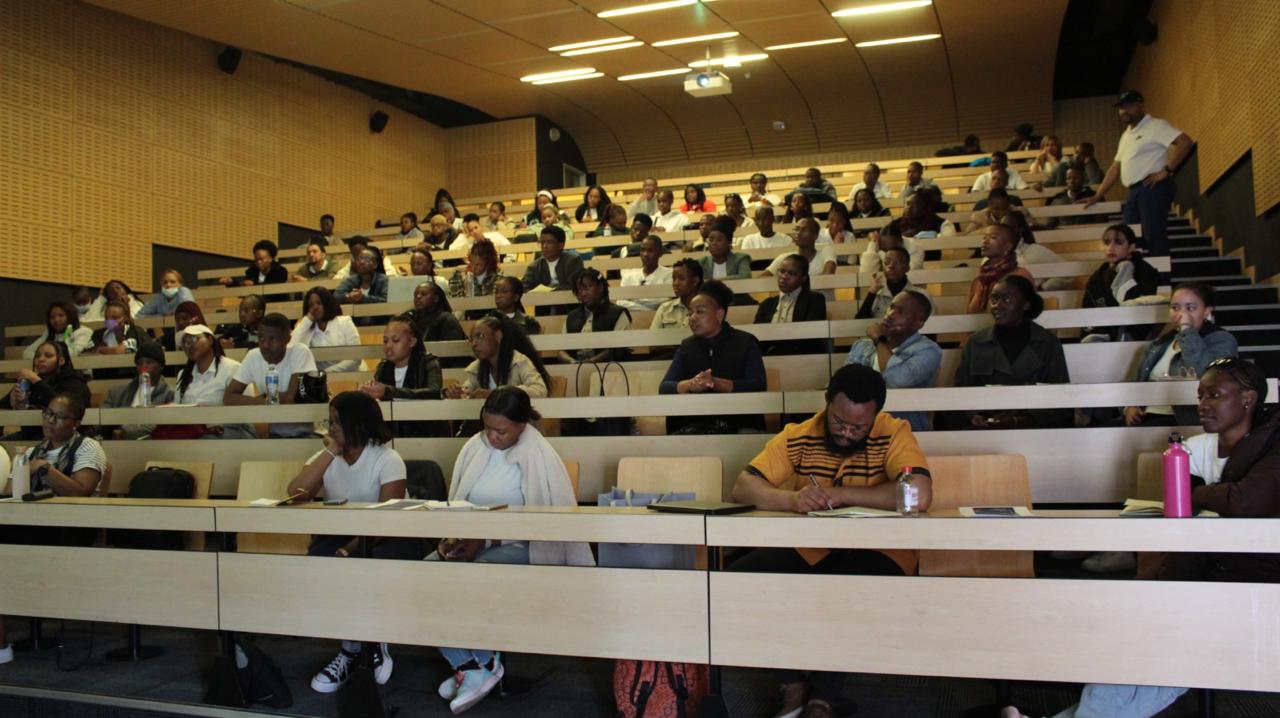
This trip exemplifies the pan-African framework of the ATLF in its quest to promote sustainable, quality, and inclusive education that reflects the African experience and imagination. In hindsight, this Africa by Bus trip highlights the potential strength of future collaborations among African universities, youth travel, and sustainability in Africa. It envisions a future that young people can shape as students, fostering an Africa characterized by sustainability and unity.


